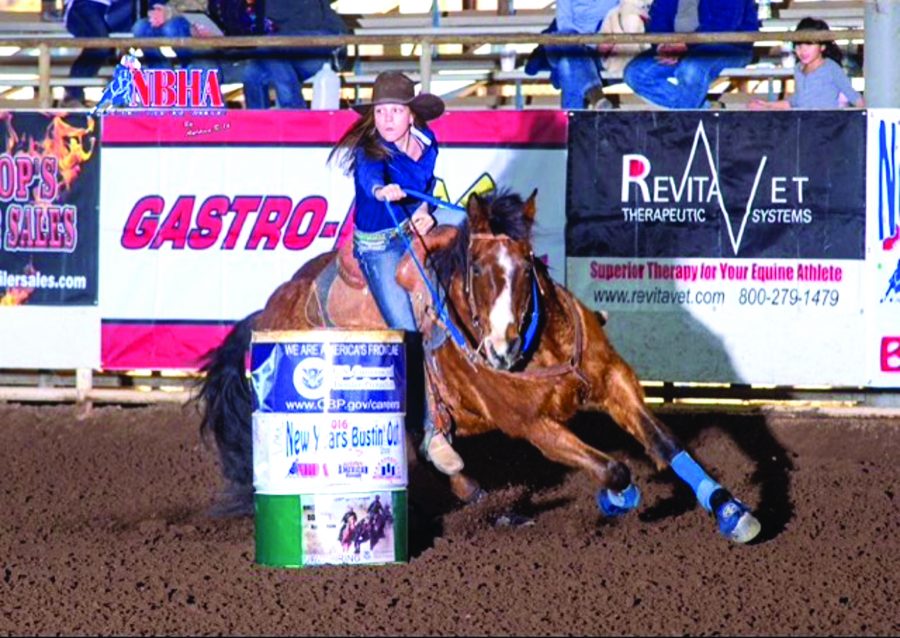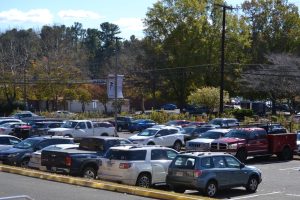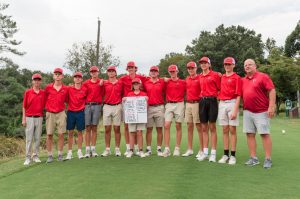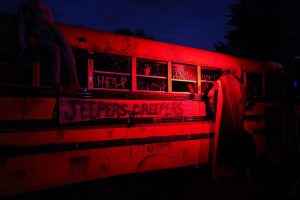Goemmer twins ride in competitive rodeos
March 21, 2017
Sophomores Fallon and Kade Goemmer grew up in New Mexico, attending rodeos every weekend. When they were four, they began riding horses, and by the time they were eight, they were competing in rodeos themselves.
“We grew up on a ranch, so there were horses everywhere,” Fallon said. “Everybody roped, so it just seemed natural to go to rodeos. It was a pretty common thing.”
Fallon competes in four different events. In pole bending, a rider must weave her horse around a line of poles, while in barrel racing, the rider completes a cloverleaf pattern around a set of barrels. In goat tying, the rider catches a goat and ties its legs together, and in breakaway roping, the rider ropes a calf and then breaks the rope off from where it’s tied to the saddle. Kade competes in calf-roping, in which the rider lassos a calf, dismounts from the horse, and then ties its legs together.
Fallon and Kade compete together in team roping, which requires them to rope a steer and tie its hind legs. According to Kade, competing together in team-roping helps them to succeed.
“It helps us because we can practice together at home, and if you had a partner who lived somewhere else, you’d have to drive there to practice,” Kade said. “You’re not afraid to tell them what they’re doing wrong [so you communicate better].”
The twins compete with the National High School Rodeo Association (NHSRA), and since there aren’t many rodeos in northern Virginia, they often have to travel far to attend events. The closest rodeos are usually in the Richmond area, Maryland, and Pennsylvania, and they sometimes attend larger rodeos out west. According to Fallon, rodeo is both an individual and a team sport.
“We represent Team Virginia [in national final competitions], but when you’re rodeoing in the state, you’re rodeoing for yourself and for your own points,” Fallon said.
Kade and Fallon attend rodeos with the rest of their family, sharing the experience and strengthening their relationships.
“Being in such tight quarters for the weekend gets a little hectic, but it’s definitely a tie to my family that I’ll always have, and a lot of memories are made,” Fallon said.
Preparing for rodeos requires the twins to not only develop their own skills, but train their horses. They train on their farm, where they practice their roping and riding.
“Practicing what we do helps [the horses] practice what they do,” Kade said.
It is essential to keep horses well-fed and healthy. The age and experience of a horse plays a role in how they train.
“You’re training [the horses] at the same time you’re training yourself,” Kade said. “I would say with the horses I have right now, I’m training myself more, but if you get a younger horse, you’re training them more.”
Kade stays in shape for rodeos through the other sports he participates in, including track and lacrosse. Fallon, who also plays field hockey and soccer, practices roping nearly every day, since muscle memory is important for success in rodeos.
According to Kade, rodeo differs from other sports because it’s a lifestyle; it requires participants to devote time to preparation, practice, and competition all year long.
“You’re spending most of your time around it, taking care of horses and practicing, because if you’re going to drive far [to compete], you want to do well.”
Fallon finds that the competition does not prevent the participants from being friends and helping one another.
“When I’m inside the arena, I’m competing, I’m in the zone, and I’m doing the best that I can do, but if someone comes up and asks me for help [or advice], I’m going to help them,” Fallon said. “You’re not going to sabotage them; you’re going to help them so that they can do the best they can.”
Rodeo has the potential to be very dangerous. At the state finals two years ago, Fallon’s horse slipped during barrel races, and she missed hitting her head on a barrel by only an inch. Some events are more risky than others, such as bull-riding.
“Anything with horses provides a risk,” Fallon said. “Whatever happens is going to happen, and you can safety-check, but there’s no real way to prevent it. I don’t myself compete in [rough stock], but we have had state bull-riders get hurt.”
Rodeos can also be expensive, with travel costs and the expenses of horses and their maintenance.
“Any sport’s expensive if you put your time into it,” Fallon said. “Rodeo can be expensive if you buy the best horses and try to [attend] the most rodeos, but you can [raise and train] your own horses and you can get sponsors, so it really depends on how much you’re willing to do and what level you compete at.”
Balancing school work, rodeoing, and other sports often proves challenging for Kade and Fallon. Since they miss a lot of school to compete, they have to make sure they stay caught up.
“Academics is a huge part of rodeo,” Fallon said. “For NHSRA, you have to submit your grades, and if you don’t’ have good grades, you can’t rodeo. It’s all about organization [and time management].”
Their hard work has paid off. Fallon holds multiple state titles, including three-time state champ in barrel racing and 2016 Rookie of the Year. Fallon and Kade are also fourth in the state for team roping.
Looking forward, Fallon plans to continue to rodeo in high school. She hopes to get a rodeo scholarship for college and compete on the school’s team.
“I don’t really know where I want to go after that,” Fallon said. “I’ll definitely continue rodeoing; I just don’t know if I’ll go all the way to pro-rodeo or just train horses.”







